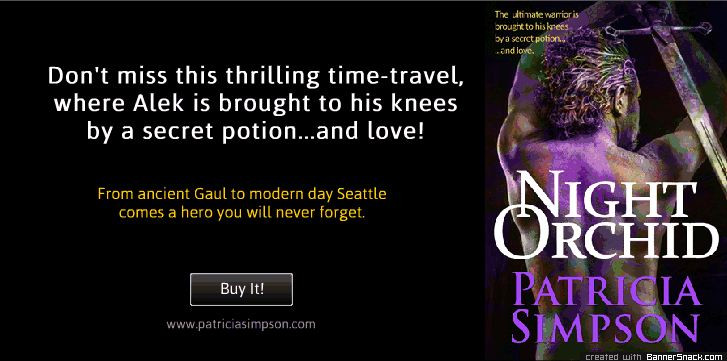Why Create an Audio Book?
Linda Lovely Interviews Author Patricia Simpson
Q. What made you decide to
narrate your own romance novel(s)? Did you have experience and/or
education/training that gave you the confidence you could produce a quality
audiobook?
I got the radio bug
early! Before I went to college, I worked at a radio station, and eventually
wrote copy there and helped produce commercials. Then in college, I worked at
the campus radio station and had my own show that I wrote and produced. It was
called “Spotlight on Music” and was a lot of fun. In my current day job, I
often do narration for nursing education videos at a major university.
Q. How did you set up to
record your first audiobook? Did
you create your own studio or rent-contract-lease facilities? Did you buy/learn
how to use editing equipment? Or did you hire a sound engineer and/or producer?
I
experimented with various locations in my home, which is in a quiet Northern
California setting. My office is too bare and caused echoes, so that was out. I
tried a bedroom, which has curtains, upholstered furniture and floor coverings.
I tried a large closet where I could isolate myself from the sound of my laptop
running (a biggee). My last book was done in a
makeshift studio using a draped computer armoire stuffed with foam connected
via a long cord to a laptop inside a closed bathroom. I am still not 100% happy
with the sound quality. I’m going to purchase a tabletop microphone surround
for my next book.
Q. Did you work with an
audiobook publisher like ACX or Blackstone Audio? If so, how did you decide
which publisher to use?
ACX is my current
publisher. I tried Podio Books, but their process and
user interface frustrated me. I also tried CD Baby, but as they are primarily
for music distribution, I have not had good sales through them. ACX had clear
easy-to-follow instructions, a good user interface, and a supportive community.
Q. What scenes are the most
difficult to narrate in a romance? Love/sex scenes? Dialogue? Internal
thoughts? Do you do anything special to prepare for each type of scene?
The
most difficult for me are scenes with three or more people talking. It’s
difficult to create and sustain three different sounding voices and keep them
consistent throughout the conversation as well as throughout the entire book.
Q. Is there a time of day
you find it best to record? How long can you work without straining your
voice/tiring?
My voice
really changes over the course of the day, so I find it best to record a book
either first thing in the morning or late at night, but to maintain that
schedule consistently for the book. I can only do a maximum of two chapters
before reader fatigue/enthusiasm sets in. That’s about an hour’s worth of
reading. There’s nothing worse than a tired, droning narrator!
Q. How long on average does
it take you to record/edit to create a finished hour of the audiobook?
It takes and hour and a half to record (to allow for consuming
enough liquid to keep my mouth moist), two hours of editing. Then an hour of listening. Then another
hour of editing. Plus final processing. So I
would estimate at least four to five hours of editing to make one hour of final
work.
Q. How do you differentiate
between your male/female characters or characters of the same sex engaged in
dialogue? Voice pitch, accent, inflections?
First off,
I imagine what that person looks like in my head. Then I use pitch, pace and
sometimes accent to differentiate. My heroes usually have a more deliberate
delivery than the heroine. I will get closer to the mic
for some people, especially a villain who delivers his venom in a softer tone.
Also, I find that I drop the “he said” “she said” tags when I’m reading, and
use more active words to tag the character. “Let
go!” she yanked her arm, instead of “Let
go!” she said, yanking her arm. It really makes a difference. An audio
version is much different than the printed version (or should be!)
Q. Have you considered
hiring a male narrator to work with you?
Not to work
with me. If you hire one voice, it seems you should hire all the separate
voices. That is too costly and complicated for me at this time. I narrate as I
imagine someone would tell the story to a listener at bedtime. That’s the image
I have in my head anyway.
Q. What mistakes did you
make early on in the process? What advice would you have to anyone who wants to
record her own audiobook?
Not having a good enough
mic. Not taking out breaths. Talking too quickly.
Replacing gaps with silence instead of “dead air”. Not having enough space
between sentences. Not altering complicated text that doesn’t translate well to
audio. Not knowing my “trouble” words, such as “managed” and replacing them
with something else. Not realizing how many times I’ve written the word
“strode” or “said”. Not speaking musically enough. Not taking enough time to
keep hydrated.
Q. Would you do it again?
Yes! It’s a
great way to tighten my writing, improve my dialogue and catch typos in my
digital and print versions. I also enjoy the process of creating something as
alive as an audiobook. To hear an author’s voice is invaluable, I think, as the
author knows the true meaning of what they have written. Plus, the audiobook
will outlive the author in a visceral way. I wish I could hear the Bronte
sisters reading their books. Or Charles Dickens. What a treat
that would be!
Patricia Simpson is an award-winning author
and narrator. Her latest audio book, Night
Orchid, is now available at Audible.com. Visit Patricia Simpson at http://patriciasimpson.com.
© 2014 Patricia Simpson


